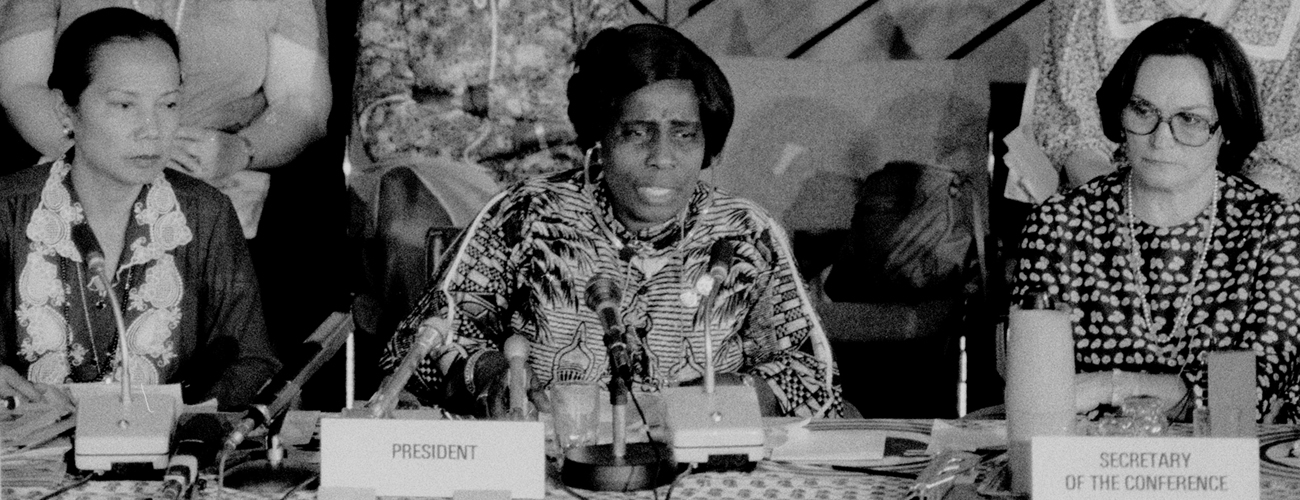
World Conference to Review and Appraise the Achievements of the United Nations Decade for Women
15-26 July 1985, Nairobi, Kenya
Background
The third world conference on women
The Third World Conference on the status of women was convened in Nairobi, Kenya, five years after the second women's conference in Copenhagen. The goal of the Nairobi Conference was to appraise the achievements of the UN Decade for Women (1976-1985) which had been proclaimed by the General Assembly on the recommendation of the World Conference of the International Women's Year in Mexico City in 1975.
The Third World Conference marked the end of the United Nations Decade for Women with the adoption by consensus of a final document, the Nairobi Forward-Looking Strategies for the Advancement of Women, which contained strategies for the rest of the century designed to improve the status of women and integrate them into all aspects of development. Representatives of more than 140 Nations attended the Nairobi conference.
The data presented by the United Nations to the delegations of Member States revealed that the improvements observed had benefited only a limited number of women. Thus, the Nairobi Conference was mandated to seek new ways of overcoming obstacles for achieving the objectives of the Decade: equality, development and peace. Three basic categories were established to measure the progress achieved:
-
constitutional and legal measures;
-
equality in social participation;
-
equality in political participation and decision-making.
-
The Nairobi Conference recognized that gender equality was not an isolated issue, but encompassed all areas of human activity. It was necessary for women to participate in all spheres, not only in those relating to gender.
The Nairobi Strategy stated that "Despite the considerable progress achieved and the increasing participation of women in society, the Decade has only partially attained its goals and objectives. Although the earlier years of the Decade were characterized by relatively favorable economic conditions in both the developed and developing countries, deteriorating economic conditions have slowed efforts directed towards promoting the equal participation of women in society and have given rise to new problems. With regard to development, there are indications that in some cases, although the participation of women is increasing, their benefits are not increasing proportionately."
